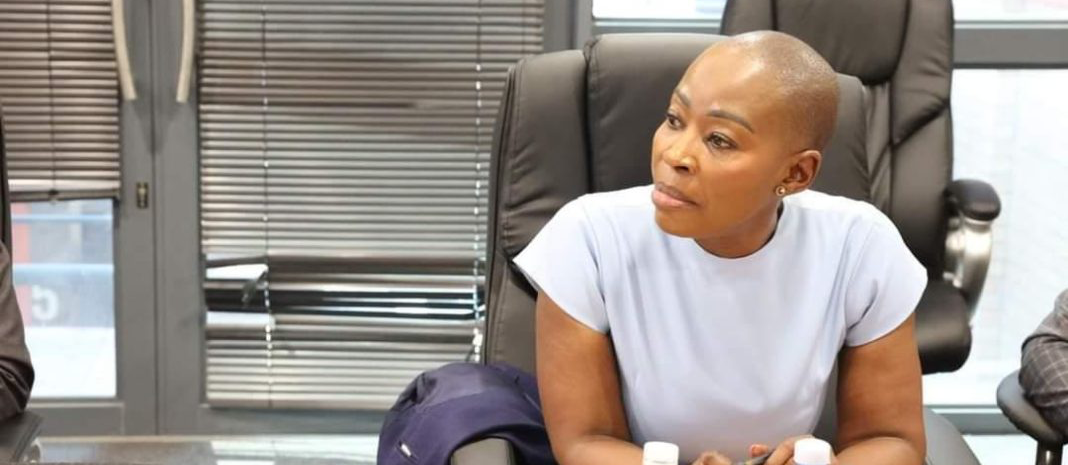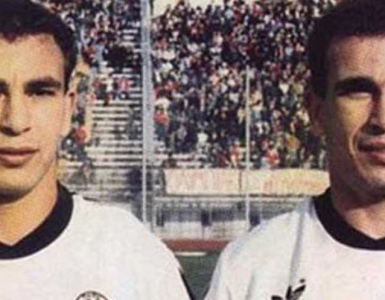PSYCHE: The nation must embark on a mission to build a society in which such indiscretions are culturally frowned up, and viewed as socially toxic.
By Ido lekota
The sound was brief, but its meaning profound. It was not a laughter of joy, but a sharp dismissive chuckle that escaped Tebogo Malaka’s lips the moment an investigative journalist mentioned the unmentionable truth: that she, as head of the Independent Development Trust (IDT) – an institution tasked with improving the lives of millions poor South Africans – was complicit in robbing the very people she was meant to serve.
The allegations was that she, colluding with other politically connected individuals, siphoned millions from the government’s extended Public Works Programme (EPWP) designed to provide South Africa’s unemployed with basic subsistence.
Her chuckle is more than just an evasive response. It exposes a deeper malaise in South Africa’s post-apartheid reality: a fractured national psyche shaped by unhealed wounds, ongoing economic exclusion and systematic oppression of the majority.
To understand that chuckle is to diagnose a national sickness. The late clinical psychologist Professor Chabani Manganyi termed this the “psychology of the wounded.” For Manganyi apartheid was a deliberate system of deep psychological trauma, and its legacy is a nation still grappling with collective psychosis. It is what psychiatrist and revolutionary Franz Fanon warned against: the “national bourgeoisie”. These are the elites who replace the colonisers but maintain exploitative systems.
Malaka and her cohort are emblematic of this condition. They belong to a Black generation that, having won political power but inherited an apartheid-era economic structure still largely intact. faced a choice: dismantle the system or exploit it. Malaka’s chuckle is the sound of that choice.
In Manganyi’s view, it represents a psychological defence mechanism – a way to deny a painful truth: that they become what the once fought against. It marks their place within a new corrupt elite, one that operates with contempt for the very people they claim to serve.
Their choice embodies a catastrophic loss of Ubuntu – the African philosophy of “I am because we are” –twisted into “I am in spite of you.” For them, community ceases to be a source of identity and becomes instead a resource to be exploited. Tragically, for the majority, the promise of liberation has curdled into what Manganyi described as “political depressions”: a condition where people hold the vote but witness a new elite speaking the language of struggle, enriching themselves while the material conditions of the masses stagnate. This betrayal is psychological, deepening the wounds of apartheid. The recent move by public works and Infrastructure Minister Dean Macherson to lay criminal charges against Malaka for allegedly attempting to bribe a journalist to silence a corruption story is a crucial and welcome step. The public rightly hopes the law will take its course, that evidence will be presented without fear or favour, and that Malaka will be held accountable for her betrayal of public trust. A functioning justice system that can convict the powerful is an indispensable pillar of any democracy.
Yet, seeing this case as the solution is mistaken. Prosecuting Malaka addressed a symptom – a festering one – but the nation’s body politic body remains ill. Her case is but one thread in a vast trajectory woven from corruption, ethical failure and a fractured psyche. The deep reset South Africa needs goes far beyond courtroom prosecutions.
While the National Prosecuting Authority pursues justice, the nation must embark on a parallel project – not merely punishing wrongdoers, but creating a society where wrong doing is far more difficult, culturally unacceptable, and socially toxic. This requires a multi-layered reset, moving the country beyond condemnation toward a practical, radical vision of national healing. That reset must replace Malaka’s dismissive chuckle with a covenant built on several key pillars:
· Reinventing Ubuntu not as a slogan, but as a demanding active ethic, and a measurable standard for public life. This can include establishing public scorecard rating political leaders and officials on transparency, accountability, community participation, and dignity – and empowering voters to judge them according at the ballot box.
· Name and fame, as well as name and shame: fiercely celebrating businesses and leaders who serve their communities, while applying intense social pressure on those who betray public trust, making corruption socially unacceptable.
· Restorative economics rooted in healing rather than extraction. This includes land reform policies prioritising community ownership trusts over individual titled deeds – building collective benefit and productivity through support and mentorship programmes to ensure food security; Broad-based Black Economic Empowerment (B-BBEE) should focus on skills development, apprenticeships, and genuine support for small businesses, shifting away from elite wealth transfer toward inclusive upliftment.
· Addressing apartheid spatial design by promoting integrated, shared spaces, by for example, requiring affordable houses in all new developments and using tax incentives to discourage the creation of new economic ghettos or gated estates.
· Mandatory national service for school leavers involving young South Africans from all backgrounds in projects like environmental conservation, literacy programmes, or community safety initiatives to foster cohesion and forge new shared identity.
· Curriculum reform: integrating the history and psychological legacy of apartheid into education, equipping future generations with the tools to understand and overcome its effects.
Malaka’s chuckle echoes the old, dying apartheid script. It is the sound of deflection, privilege, and contempt. But the new South Africa will be built by those who choose a different sound: the sober, difficult, and honest conversation.
The path ahead demands choosing encounter over evasion, restoration over extraction, and a shared destiny over separate realities. It is the gritty practical work of building a nation where freedom is not just political rhetoric, but a psychological and economic reality. Only then will future leaders meet allegations of betrayal not with a dismissive chuckle, but with accountable, humble and urgent action.
• Ido Lekota is an independent political commentator


































